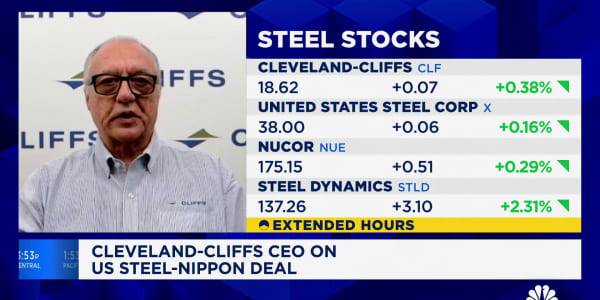France’s new plan to rescue Greece and forestall the looming global financial crisis has one important thing in common with all the previous efforts: It won’t work.
Hearing the clamor for a 21st century version of the "Brady Bonds," which helped save Latin America in the late 1980s, France has proposed allowing Greece to stretch out the maturity of its debt to 30 years, presumably with a more manageable payment schedule.
The idea is that it would give Greece time to work out its problems while assuring that the foreign banks holding the 340 billion euros of outstanding debt would still get paid.
A few problems:
The Brady Bonds—named after former Reagan Treasury Secretary Nicolas Brady, who devised them—came at a different time for the world economy, when the global financial system was less entangled and interdependent than it is now.
Further, the nations participating then—Argentina, Brazil, Mexico and a handful of other Latino countries, as well as Poland, Nigeria and others around the globe—had economies with fewer problems than Greece and its fellow euro peripherals.
Greece has an economy that is tanking, with high unemployment, plunging sales and few other signs to indicate that it can grow its way out of its problems, regardless of the duration extended for its maturing debt.
Peter J. Tanous, president of Lepercq Lynx Investment Advisory in Washington D.C., and my co-author in the recently released book, “Debt, Deficits and the Demise of the American Economy,” puts it well:
“People think Greece will be saved by the current rescue. But they underestimate the people's reaction to the draconian austerity measures that will reduce salaries, pensions and many will get fired,” he says.
“A third of the country works for the government and they'll feel it. They will take to the streets and the country will crumble. The various analysts haven't taken into account the cultural and ethnic characteristics. Greeks aren't Germans. Germans are disciplined and they obey orders in lockstep, and sometimes they do it too well. Greeks are free spirits and they will take to the streets.”
A few more problems:
Forging the needed coalition among the intricate web of interests regarding Greece has been elusive to say the least. Even if commercial banks get on board, they only hold about a quarter of the total debt. So convincing the private investors and other interested parties will be a monumental task.
“What’s more, even if the bulk of investors sign up to the French plan, it will not solve all of Greece’s problems,” Ben May, European economist at Capital Economics in London, wrote in a research note. “After all, the government will still need to tighten fiscal policy dramatically in order to close its huge budget deficit.
“This, coupled with the economy’s poor competitive position, points to a long period of weak growth at best. Accordingly, government debt will remain astronomically high.”
Finally, there’s the not-insignificant matter of the ratings agencies.
Fitch has said any voluntary rollover would constitute a default and cause the bonds to be rated “Restricted Default.”
This essentially puts the new Brady plan in a Catch-22: The rollover will only be approved as long as the bonds aren’t in default, and if the bonds are rolled over they’ll be classified as a default.
It is well to keep in mind that the major ratings agencies—Fitch, Moody’s and Standard & Poor’s—are going to have a chip on their collective shoulders after being caught asleep ahead of the financial crisis of 2008 and 2009. They aren’t going to allow themselves to be left unaware this time around.
Fitch expressed its position in a letter from Managing Director David Riley to the Financial Times that carried the headline, “If it looks like a default, we will rate it as one.”
The missive pretty well sums up the Greek dilemma and why France’s proposal won’t work.
“By far the most important and beneficial outcome for Greece and its creditors is securing a credible solution to the current crisis,” Riley wrote. “In light of the market focus on a rating outcome, we would like to take the opportunity to make clear that Fitch is guided by the spirit as well as the letter of its criteria—if it looks like a default, we will rate it as a default.”
________________________________________
Questions? Comments? Email us at
Follow Jeff @ twitter.com/JeffCoxCNBCcom
Follow NetNet on Twitter @ twitter.com/CNBCnetnet
Facebook us @ www.facebook.com/NetNetCNBC






